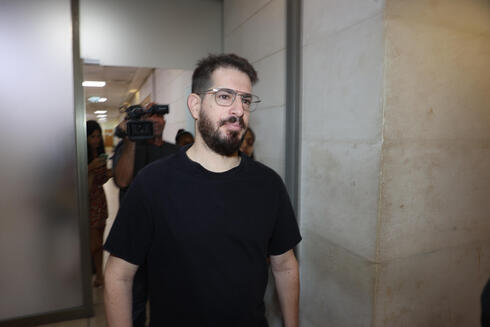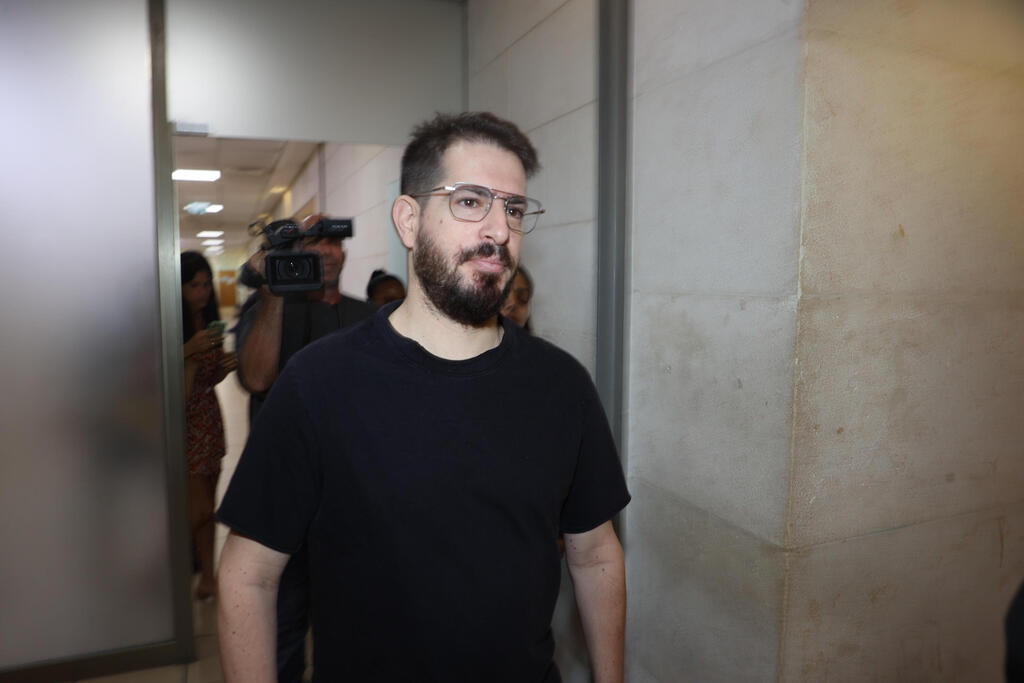
Moshe Hogeg accused of defrauding investors of $290 million through sham crypto projects
The investigation into the former owner of Beitar Jerusalem unveiled his recruitment of numerous investors globally for projects that were never realized. Utilizing the raised funds, he funded an opulent lifestyle and paid dozens of women for sex. The case has now been handed over to the prosecutor's office
The National Fraud Investigations Unit (NAU) at Lahav 433 has concluded its investigation of businessman Moshe Hogeg for both economic offenses and sexual misconduct. The police forwarded the investigation findings to the tax and economic attorney's office on Wednesday for review. They believe that there is sufficient evidence in both cases to proceed with filing charges.
The investigation, initiated in 2020 as covert, transitioned to an open status following Hogeg's arrest in November 2021. He was held in custody for approximately a month before being released under house arrest.
Regarding the economic offenses, the focus is on four crypto projects led by Hogeg. The inquiry unveiled fraudulent acquisition of $290 million from investors, which was diverted for personal gain. Notably, Hogeg used the same funds to acquire the Beitar Jerusalem soccer team, expensive real estate, and cars.
Additionally, the investigation revealed that Hogeg misled investors in his ventures, occasionally through document forgery. In two instances, ventures were not established at all, while in two other cases, ventures with no potential future value were created. Despite this, numerous investors from Israel and around the world invested, believing these ventures to be attractive opportunities.
Post-investigation, the police seized substantial property, valued at NIS 134 million (approximately $35 million), belonging to Hogeg and other suspects. The police view these as instances of aggravated theft, money laundering, and other economic offenses.
Sexual misconduct revelations: The police examined two cases involving evidence of forced sexual activity by Hogeg. However, the two women did not cooperate with the investigation, during which suspicions of human trafficking arose. Nevertheless, the police were unable to establish an evidentiary basis for this offense, as first revealed on Ynet. These cases involve over 20 Israeli women who were engaged in sexual relationships with him in exchange for money or favors, alongside dozens more women abroad.
The investigation disclosed that Hogeg systematically located young women through sex networks, occasionally exploiting their mental and financial hardships. Anyone who brought a friend received a "bonus" payment. Hogeg covertly recorded sexual encounters with these women using hidden cameras, with underaged girls involved in two cases.
The police suspect a connection between the financial case and the sex crimes case - funds embezzled by the perpetrator were used to fund an extravagant lifestyle, including flying women from abroad to Israel and hosting them. At times, Hogeg paid NIS 10,000 per woman ($2,660) for a single meeting. He also distributed photos to friends, sometimes including images of well-known women, constituting a serious violation of privacy.














